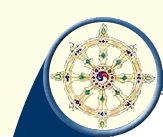Bridging Two Worlds Apart |
|
About the Program
|
|
This Himalayan Study Abroad Program (HSAP), in partnership with the Kathmandu University, is designed to provide students with a basic understanding of pollution, biology, sustainable development, health, and the cultural significance of the two river systems --the Bagmati River in Nepal and the Rio Grande of New Mexico. The program begins with a one semester course and culminates in a 2-week long field experience in Nepal in summer to learn first-hand about the Bagmati River basin in Kathmandu valley. |
WHO SHOULD TAKE THE COURSE
Even though the primary course for this program is Economics 203 (Environment and Society), which is cross-listed as Community and Regional Planning 203, this program is open to students from other classes and disciplines who are interested in an interdisciplinary educational experience. Economics 203 has no pre-requisites. Limited seats could be made available for graduate students. Economics 203 will be offered in Spring 2009.
Space for the Nepal trip is limited, and although enrollment in Economics 203 is not required, preference will be given to students who are enrolled in the course.
A WIDE RANGE OF EXPERIENCE
The Environment and Society program features environmental and cultural classes, guest lectures, visits to the origin and the exit points of the Bagmati River in the valley, cultural and religious sites in Kathmandu, nature hikes, and much more. In essence, HSAP will attempt to provide students with the following experiences:
• Environment and conservation
• Arts, culture, myths, and legends
• Sustainable development (e.g., micro credit program; eco-tourism)
• Environment and health (e.g., water quality, water borne illness)
• Sustainable technologies to promote environmental conservation (e.g., briquette making from recycled materials; smokeless stove; compost toilet; rain, solar, wind, and cloud harvesting)
• Community participation and grass-roots organizations
UNM students will also have an opportunity to interact with their counterpart fellow students from Kathmandu University.
INDEPENDENT STUDY OPTION
Upon return from Kathmandu, interested students will have an option to work out a plan with their professors to earn 3-credit independent study on topics of their interest and field experience. Students choosing this option are strongly advised to make a prior-arrangement with their professors before leaving for Kathmandu.
Space for the Nepal trip is limited,
and although enrollment in Economics 203 is not required, preference
will be given to students who are enrolled in the course. A separate
3-credit course --Econ 395: Himalayan Study Abroad-- allows students to
earn 3 credits out of this summer international experience. All the
reading preparation is done in the Spring Semester prior to departure
to Kathmandu. At the end of the trip, students are required to submit a
journal and a research paper.
|
Classroom Teaching experience at UNM
|
The primary course for this program is Economics 203 which is cross-listed as Community and Regional Planning 203. This course is open to students who are interested in an interdisciplinary educational experience. This course is generally offered in the Spring Semester, and has no economics prerequisites.
Classroom discussion will focus on the two river systems and their respective roles in the Middle Rio Grande basin and Kathmandu Valley. Numerous field trips in New Mexico will bring issues surrounding the Rio Grande to life. Guest lectures and tours will focus on pollution, biology, economics, health, and the cultural significance of the river. |
Field Experience in the Himalayas
|
Students interested in a complete experience will have an opportunity to go on a field trip to Nepal to learn about the Bagmati River. The cost of this field trip will depend upon the length and the specificity of the program, and it may vary year to year. Students are encouraged to seek grants for financial support at UNM and elsewhere.
This Study Abroad Program will attempt to expose students to an array of fascinating and highly educational experience.
• Guest lectures focusing on pollution, biology, economics, health, and the cultural significance of the Bagmati River. This will be done at the collaborating institution in Kathmandu.
• Short trekking trips to the upper, middle and the lower parts of the river.
• Exploring religious shrines along the river.
• Exploring architecture, arts, music, and mythology of the Bagmati basin.
• Hands-on experience with eco-friendly demonstration projects (e.g., Bagmati ecosystem monitoring project implementation in a school by the river –modeled after the Bosque program of Albuquerque; cloud harvesting, rain water catchments, solar power, compost toilet, water purification)
• Exploring historical towns
• Bird watching and exploring wetland areas
• Hikes and tours of the development project sites (community forest, water diversion projects, micro hydro, model village/eco-tourism, community health centers)
• Experience Kathmandu at a cross-roads: modern life and its ancient past living side-by-side.
This is not an exhaustive to-do list and activities will vary from year to year. This field trip may last from 2 to 4 weeks depending upon the faculty involved and the scope of the program in a particular year.
|
|
